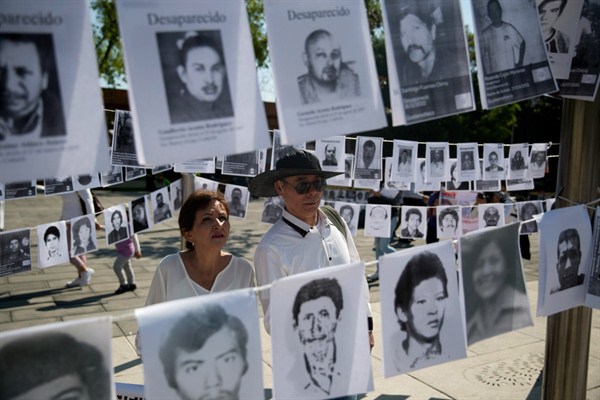Mexico’s drug policies could be in for some sweeping changes, and with them the country’s relations with the United States. Last week, President Andres Manuel Lopez Obrador announced that his administration would seek to revise the Merida Initiative, the $3 billion U.S. aid package that has largely funded Mexico’s war on drugs. In a press conference May 9, Lopez Obrador, widely known in Mexico as AMLO, said his administration does not “want aid for the use of force, we want aid for development.”
The announcement came shortly after the Mexican government released a National Development Plan for the next five years that proposes decriminalizing all drugs in Mexico. That plan, approved by Mexico’s Senate, also seeks to eradicate corruption and improve the justice system; guarantee jobs and higher education for children; and invest in infrastructure and health services through regional programs and development goals.
If implemented, the plan would mark a major shift in Mexico’s drug and security policies, which have operated under the logic of a low-intensity war against drug cartels since 2006, shortly after Felipe Calderon took office, and have received U.S. funding since 2008. The majority of this funding package has gone toward security, especially in its first three years—including transferring U.S. military hardware and equipment to the Mexican government, providing police training, and assisting Mexican authorities with intelligence operations to capture cartel leaders and intercept drug trafficking, in addition to training Mexican immigration authorities.

